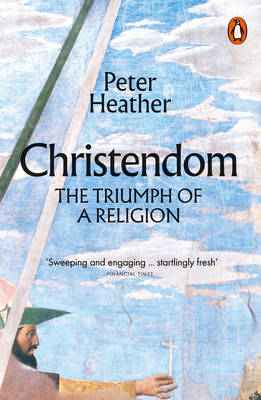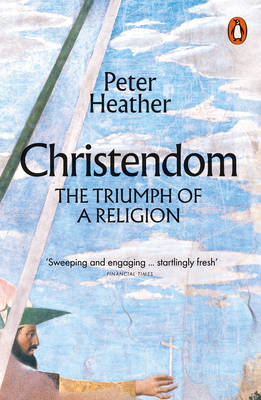
- Afhalen na 1 uur in een winkel met voorraad
- Gratis thuislevering in België vanaf € 30
- Ruim aanbod met 7 miljoen producten
- Afhalen na 1 uur in een winkel met voorraad
- Gratis thuislevering in België vanaf € 30
- Ruim aanbod met 7 miljoen producten
Zoeken
€ 26,95
+ 53 punten
Uitvoering
Omschrijving
In the fourth century AD, a new faith exploded out of Palestine. Overwhelming the paganism of Rome, and converting the Emperor Constantine in the process, it resoundingly defeated a host of other rivals. Almost a thousand years later, all of Europe was controlled by Christian rulers, and the religion, ingrained within culture and society, exercised a monolithic hold over its population. But, as Peter Heather shows in this compelling new history, there was nothing inevitable about Christendom's rise to Europe-wide dominance.
In exploring how the Christian religion became such a defining feature of the European landscape, and how a small sect of isolated and intensely committed congregations was transformed into a mass movement centrally directed from Rome, Peter Heather shows how Christendom constantly battled against both so-called 'heresies' and other forms of belief. From the crisis that followed the collapse of the Roman empire, which left the religion teetering on the edge of extinction, to the astonishing revolution of the eleventh century and beyond in which the Papacy emerged as the head of a vast international corporation, Heather traces Christendom's chameleon-like capacity for self-reinvention and astounding willingness to mobilize well-directed force.
Christendom's achievement was not, or not only, to define official Christianity, but - from its scholars and its lawyers, to its provincial officials and missionaries in far-flung corners of the continent - to transform it into an institution that wielded effective religious authority across nearly all of the disparate peoples of medieval Europe. This is its extraordinary story.
In exploring how the Christian religion became such a defining feature of the European landscape, and how a small sect of isolated and intensely committed congregations was transformed into a mass movement centrally directed from Rome, Peter Heather shows how Christendom constantly battled against both so-called 'heresies' and other forms of belief. From the crisis that followed the collapse of the Roman empire, which left the religion teetering on the edge of extinction, to the astonishing revolution of the eleventh century and beyond in which the Papacy emerged as the head of a vast international corporation, Heather traces Christendom's chameleon-like capacity for self-reinvention and astounding willingness to mobilize well-directed force.
Christendom's achievement was not, or not only, to define official Christianity, but - from its scholars and its lawyers, to its provincial officials and missionaries in far-flung corners of the continent - to transform it into an institution that wielded effective religious authority across nearly all of the disparate peoples of medieval Europe. This is its extraordinary story.
Specificaties
Betrokkenen
- Auteur(s):
- Uitgeverij:
Inhoud
- Aantal bladzijden:
- 736
- Taal:
- Engels
Eigenschappen
- Productcode (EAN):
- 9780141988535
- Verschijningsdatum:
- 2/11/2023
- Uitvoering:
- Paperback
- Afmetingen:
- 129 mm x 198 mm
- Gewicht:
- 520 g

Alleen bij Standaard Boekhandel
+ 53 punten op je klantenkaart van Standaard Boekhandel
Beoordelingen
We publiceren alleen reviews die voldoen aan de voorwaarden voor reviews. Bekijk onze voorwaarden voor reviews.











